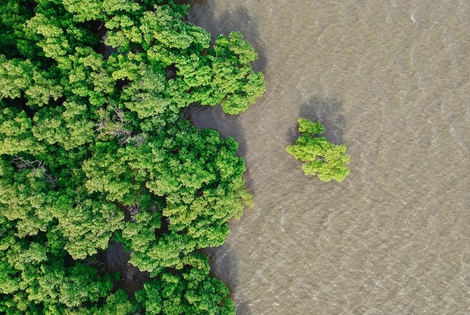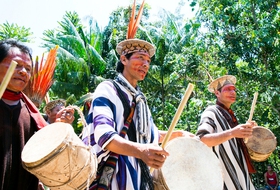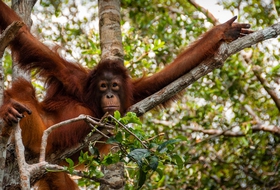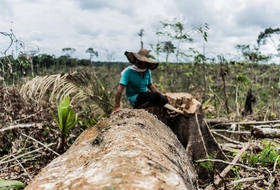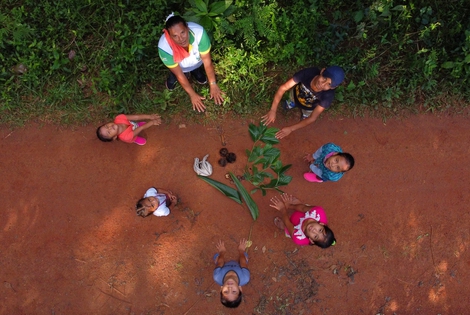
The Amazon became an alternative classroom during the pandemic. Now, the educational forest in Batraja, Bolivia, lives on to teach children and adults the value of nature.
Chatham House’s new report confirms the significant environmental impact of the livestock industry. Yet governments are doing nothing.
The largest amount of the polluting emissions comes from transports. Wrong. This is what most of people think worldwide, according to a global survey carried out by Ipsos Mori. The main source of pollution is the livestock industry, which produces more greenhouse gas emissions than all cars, airplanes, trains and ships together.
In order to curb global warming effects it is necessary to cut meat consumption. The nth warning comes from a research by the Chatham House, independent association based in the UK, according to which breeding farms all over the world produce 14.5% of the total greenhouse gas emissions. The lack of awareness among people represents the main obstacle to stop the phenomenon.
“Results clearly show a lack of awareness among publics. The acknowledgement of the role of the livestock industry in contributing to climate change resulted definitely lower than in the other sectors examined,” said Rob Bailey, the report’s lead author. In order to contain deforestation and reduce transports impact, governments have taken important measures, whilst they did very little for the livestock industry.
A change in people’s diet can substantially lower emissions, according to IPCC last report. Despite there’s no doubt about the disastrous impact of meat and dairy products production, governments and the UN are doing nothing to reduce consumption. The reason seems to be the fear of consumers’ reaction and the conviction that telling citizens what to eat wouldn’t be fair, according to Chatham House.
Chatham House’s report shows that the global demand of meat is likely to significantly increase by 60-70% by 2050. “We can cut a quarter of our climate emissions from the European food supply chain by eating more pulses, fruit and vegetables and by reducing our meat consumption. National governments should improve food education to encourage healthy eating habits and environmental sustainability as a first step,” said Brigitte Alarcon, sustainable food policy officer at WWF.
Siamo anche su WhatsApp. Segui il canale ufficiale LifeGate per restare aggiornata, aggiornato sulle ultime notizie e sulle nostre attività.
![]()
Quest'opera è distribuita con Licenza Creative Commons Attribuzione - Non commerciale - Non opere derivate 4.0 Internazionale.
The Amazon became an alternative classroom during the pandemic. Now, the educational forest in Batraja, Bolivia, lives on to teach children and adults the value of nature.
Our species took its first steps in a world covered in trees. Today, forests offer us sustenance, shelter, and clean the air that we breathe.
Bangladesh suffered widespread damage as a result of Cyclone Amphan. Yet the Sundarbans mangrove forest acted as a natural barrier protecting the country from further destruction, as it has done countless times before.
On top of a 2.4 million dollar compensation, the indigenous Ashaninka people will receive an official apology from the companies who deforested their lands in the 1980s.
The tapir was reintroduced into Brazil’s Atlantic Forest, the country’s most at-risk ecosystem. The species can play a key role in the forest’s recovery.
Forests are home to 80 per cent of the world’s terrestrial biodiversity. This year’s International Day of Forests highlights the urgent changes needed to save them.
After a legal battle that lasted two years, Indonesia’s Supreme Court has revoked the permit to mine for coal in the forests of South Kalimantan in Borneo.
The list of human and animal victims of the Australia wildfires keeps growing – one species might already have gone extinct – as the smoke even reaches South America.
Areas where the FARC guerrilla used to hold power in Colombia have faced record deforestation. Farmers cut down trees, burn land and plant grass for cows. Because, “what else can we do for a living here in the Colombian Amazon”? An intimate report from the heart of the felled forest in Caquetá.

